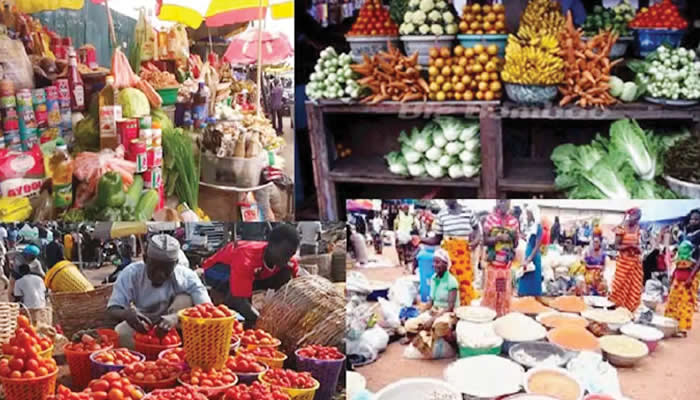The devout Muslims of Nigeria celebrated Eid-El-Kabir like their colleagues worldwide.
The event coincided with rising food prices and deteriorating economic conditions.
Results showed that because of rising inflation that has driven up the cost of food and transportation, some Muslims observed the holidays quietly.
Pricing increased daily as a result of the escalating inflation, which peaked in May at 33.95 percent.
The Nigeria Bureau of Statistics (NBS) reports that food inflation in Nigeria is over 40%, which makes it particularly difficult for many people to buy food.
The cost of goods has increased during a visit to a few markets outside of the Federal Capital Territory, or FCT, in Abuja.
Speaking out, a few customers claimed that even with the Naira’s strengthening value relative to the US dollar, food costs remained too high for the average person.
A tomato basket sold for as much as N200,000, according to a pepper and tomato merchant in Mararaba Market who went by the name Dauda. He added that in April, the same basket cost for N40,000 or even less.
He acknowledged, “Most people can’t afford these things anymore.”
He further bemoaned the fact that “smaller baskets and mini buckets of the perishable item were sold for N10,000 to N15,000, respectively.”
An average-sized ram was sold for more than N80,000 at ram sale locations in the same Mararaba; others even went for a negotiable price of N500,000.
Similar to this, a number of variables, like as inflation, insecurity, an increase in transportation prices, several taxes, and feeding costs, contributed to the price increase at the Kugbo ram market in Abuja.
A ram vendor, who wished to remain anonymous, listed a few causes for the price increase.
“The ram of this size was N350,000 last year, but it is now N550,000,” he stated.
“Transportation expenses have increased dramatically and the cost of feeding has altered.
“Transporting a ram from the border with the Niger Republic cost N2,000 last year, but now it costs N8,000. A load on a trailer that was previously hauled for N500,000 is now over 1,000,000
In the same ram market, a devout Muslim woman claimed that because of the current economic difficulties, ram has become more expensive and nearly unaffordable.
“I went to the market to buy a big ram, but since I couldn’t afford it, I had to settle with a small one.
“I paid N85,000 for the one I ultimately purchased, but the large one I desired to purchase was offered for a negotiable price of N190,000.
He claimed that “many buyers went there and were disappointed because they couldn’t afford the ram.”
Adamu Hassan, a commercial motorcycle rider, claimed that people were merely attempting to carry out their religious duties.
“Last year and even this year, I could not afford a ram because the price keeps going up due to economic inflation,” he remarked.
“I will buy if Allah allows me to, but people need to understand that no Muslim who cannot afford a ram is burdened by Allah.”
Food vendor Njoku Mary bemoaned the lack of business from clients due to rising commodity prices and the limited purchasing power of the populace.
Imagine that spaghetti is now N850 and maggi is now N1,300 per pack. This is too much for us; we are not making any money, and the government ought to assist us,” she remarked.
Ene Joseph, a vendor at Nyanya Market who sells food and supplies, lamented the difficulties the hyperinflation had caused her company.
“A bag of milk used to cost N5,500, but now it costs N15,000.”
The bread that I used to get from bakers for N600 now costs between N1600 and N2000 due to the elevated prices of grain, milk, and sugar.
“We are tired as traders; we just sit in the sun getting nothing, and we have to pay to shop in the market,” the woman bemoaned.
A 50kg bag of rice costs approximately N2,700, while a mudu of rice costs between N2,500 and N2,700, according to another dealer who sells cereal products like local rice, corn, beans, and others.
In a similar spirit, a customer going by the name Mohammed expressed his sadness over not being able to purchase the supplies his family needed for the celebration due to the increase in food prices.
Many are taking advantage of the current economic climate to deceive others by blaming the elimination of fuel subsidies.
“I’ve seen people hoard things they previously paid a particular amount for yet won’t part with them.
She held them in anticipation of a rise in price, which would allow her to double the amount and profit much more.
“Let the government keep an eye on the market in order to regulate products prices. This will significantly aid in reducing the escalating expenses of goods, he stated.
